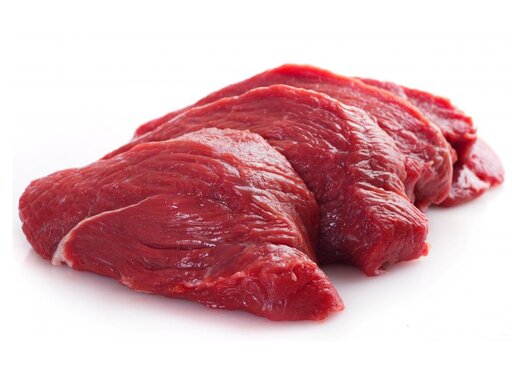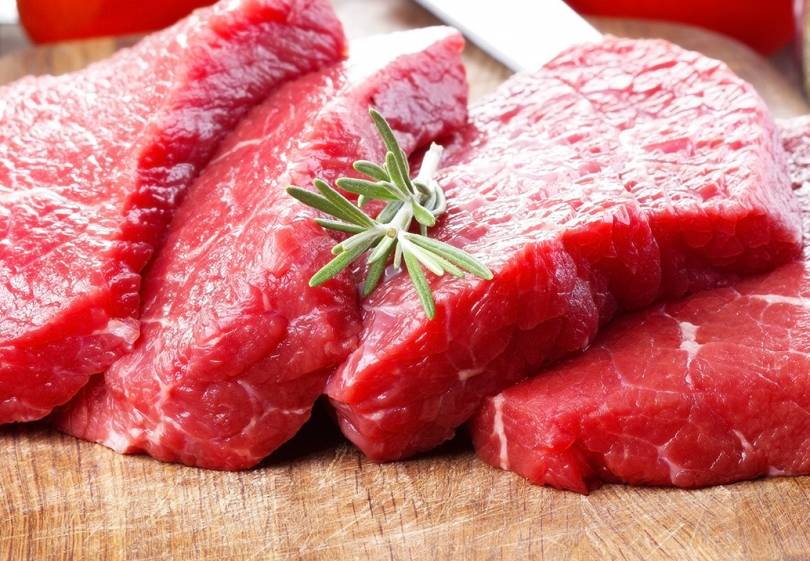100g Beef Nutrition: Understanding the Facts About Calories, Protein, Fat, Carbs, and Vitamins
Beef is a staple food in many households and has been a part of human diets for centuries. It is rich in various nutrients, including protein, vitamins, and minerals, making it an essential part of a healthy diet. However, many people are unaware of the nutritional content of beef and how it affects their overall health. This article aims to provide a comprehensive guide to understanding the nutrition facts of 100g beef.
Nutritional Information Of 100g Beef

Beef is an excellent source of protein, vitamins, and minerals. It is also high in calories and fat. Here's a breakdown of the nutritional content of 100g beef:
Calories in 100g Beef
100g of beef contains around 250-300 calories. However, the calorie content of beef can vary based on the cut and cooking method.
Protein in 100g Beef
Protein is an essential nutrient that helps build and repair muscles. 100g of beef contains around 25g of protein, making it an excellent source of protein.
How Much Fat Is In Beef
Beef is high in fat, with around 20-30g of fat in 100g of beef. However, it also contains healthy fats, such as omega-3 and omega-6 fatty acids.
Carbohydrates In Beef - How Many Carbs In Beef
Beef does not contain any carbohydrates.
Vitamins In Beef

Beef is rich in various vitamins, including B vitamins (B1, B2, B3, B5, B6, and B12), vitamin D, and vitamin E. It is also a good source of minerals such as iron, zinc, and selenium.
Health Benefits Of Eating Beef
Beef offers several health benefits, including:
Builds and Maintains Muscle Mass
Beef is an excellent source of protein, which is essential for building and repairing muscles. It also contains amino acids that help build muscle mass and promote muscle recovery after exercise.
Does Beef Boost Immune System
Beef is rich in zinc, which is essential for a healthy immune system. Zinc helps produce white blood cells that fight off infections and diseases.
Provides Energy
Beef contains high-quality protein, which provides energy and keeps you feeling full for longer periods. It also contains iron, which helps transport oxygen to the body's cells and tissues.
Promotes Brain Function
Beef contains vitamin B12, which is essential for brain function. It helps produce red blood cells, which carry oxygen to the brain, promoting healthy brain function.
Beef Helps Weight Loss
Beef contains protein, which helps keep you feeling full for longer periods. It also helps build muscle mass, which burns more calories than fat, promoting weight loss.
Risks Of Eating Beef
While beef offers several health benefits, it also comes with risks, including:
Increased Risk of Heart Diseases
Beef contains saturated and trans fats, which can increase cholesterol levels and increase the risk of heart diseases. However, lean cuts of beef and grass-fed beef have lower fat content and can be a healthier option.
Does Beef Cause Cancer
Some studies suggest that consuming large amounts of red meat, including beef, can increase the risk of colorectal cancer. However, it is essential to note that the link between red meat and cancer is still being studied, and more research is needed to confirm this.
Beef Is Good For You
The answer to this question is not straightforward as it depends on various factors. Beef is a rich source of nutrients such as protein, iron, zinc, and vitamin B12, which are essential for maintaining good health. However, it also contains saturated and trans fats, which can increase cholesterol levels and increase the risk of heart diseases.
Consuming beef in moderation and choosing lean cuts of beef can be a healthy addition to your diet. It is also important to consider other factors such as your overall diet and lifestyle habits. If you have certain health conditions or dietary restrictions, beef may not be the best choice for you.
In conclusion, whether beef is good for you or not depends on various factors, and it is important to consider these factors and consume it in moderation to reap its health benefits.